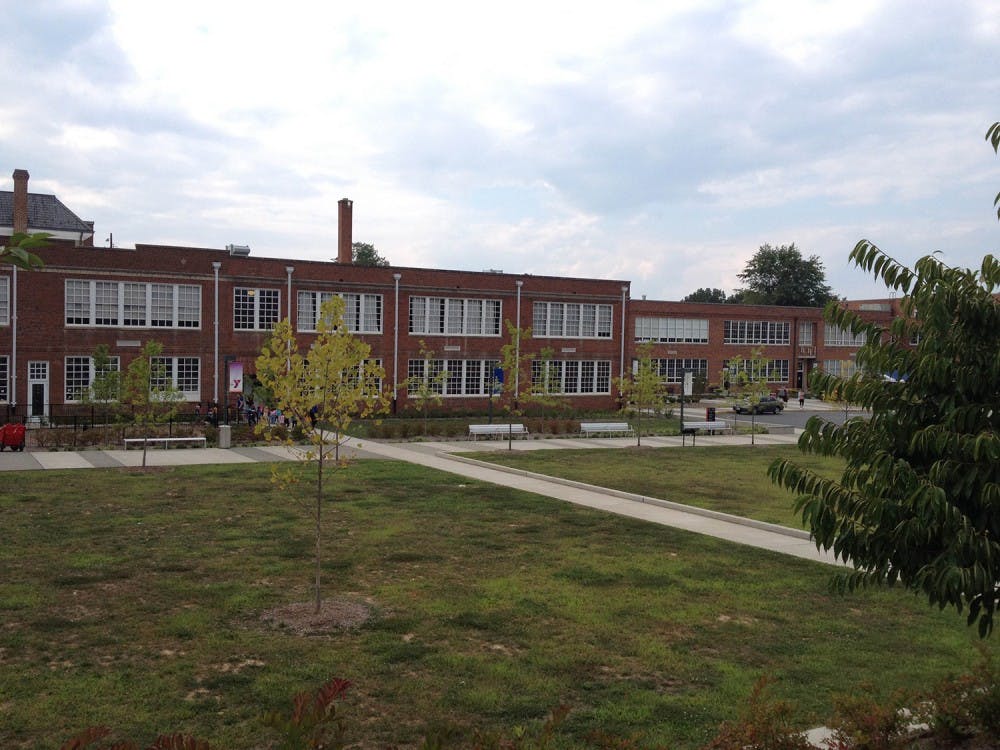The Charlottesville Human Rights Commission hosted a study circle for its “Dialogue on Race” program at the Jefferson School African American Heritage Center Tuesday evening.
The study circles started in September and meet once a month through November for three hours. Participants receive reading materials which accompany the curriculum and trained facilitators lead group discussions.
Tuesday evening the study circle began with a privilege walk facilitated by Charlene Green, manager of the city’s Office of Human Rights.
Green told the dozens of community members in attendance to stand side by side in a line in the center of the room. She read instructions for the participants to step backward or forward depending on their experience with race.
“If your ancestors came to this country by choice, take one step forward,” she said. “If your ancestors have ever been denied the right to vote based on their race or ethnicity, take one step back.”
The directions also included questions about contemporary experiences of racial identity.
“If you can go to any store and purchase products related to your culture, whether that be hair products or food, take one step forward,” Green said. “If you are never asked to speak for all the members of your racial or ethnic group take one step forward.”
After the privilege walk, Green asked the participants to examine who was standing nearest them, who was farthest away and discuss how the activity made them feel. Most of the community members near the front of the room were white, while most in the back were people of color.
Green then asked the participants to divide into groups based on their identity as white or a person of color for the next 30 to 40 minutes.
She said the groups would discuss what patterns they noticed during the privilege walk, and the connection between those patterns, racial identity and privilege. Some questions were tailored specifically to the group’s identity as white or people of color.
The Cavalier Daily spoke with Paola Salas, the community outreach and investigation specialist with the city’s Office of Human Rights, who helped organize the Dialogue on Race. An immigrant from Panama, Salas detailed her goal to broaden the horizons of the discussion.
“The last time the Dialogue on Race happened, it was very much focused on the black-white racial dichotomy,” Salas said. “Since 2009, the diversity amongst minority populations in Charlottesville has increased to include more Latinos, more refugees. For this session, we’re actually test-piloting a Spanish-led dialogue group, which is led and facilitated only in Spanish.”
David Straughn attended the Dialogue on Race, and said that he came to better comprehend race relations in modern America.
“My personal purpose is to understand why we have such bad race relationships right now,” Straughn said. “I grew up during the 1960s and we went through all of that once, and now it seems like all of a sudden all of that stuff is coming back up again.”
Straughn said there are benefits of open discussion and debate.
“Anytime you open up a dialogue, it’s a positive thing,” he said.
Straughn listed his hopes for what the dialogue could achieve, stating his belief that adding to the historical narrative is better than subtracting from it.
“I would like to see … both sides looking at the other side’s opinion,” he said. “[The Confederate flag] doesn’t offend me no more than the British, the Japanese, the German or the Italian flag should offend me, because these were from wars that were fought and wars that are over with.”
The Dialogue on Race initiative started in 2009. Since then, the original community forum has inspired the creation of various action groups, which have raised support and awareness for tackling issues of race in Charlottesville including ending housing segregation, supporting minority-owned businesses, closing achievement gaps in education, facilitating reentry into society after incarceration and commemorating African-American history.







